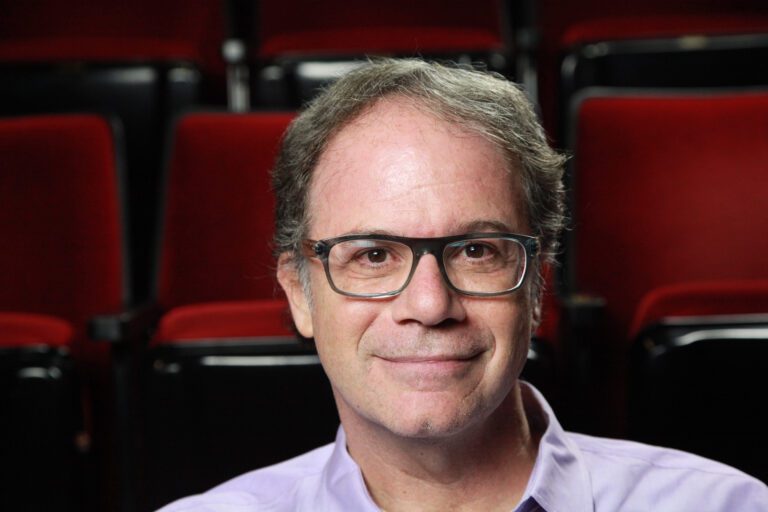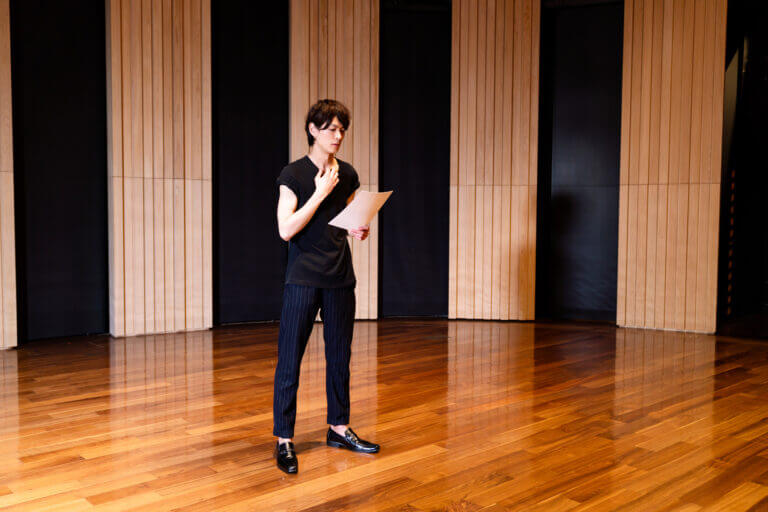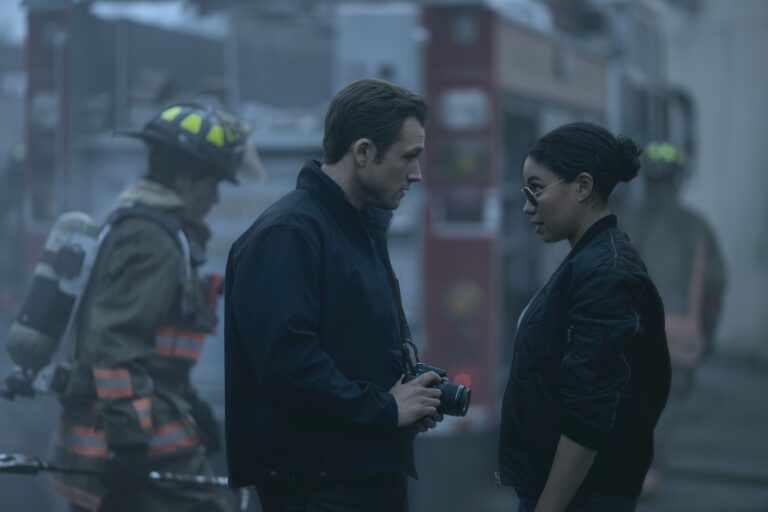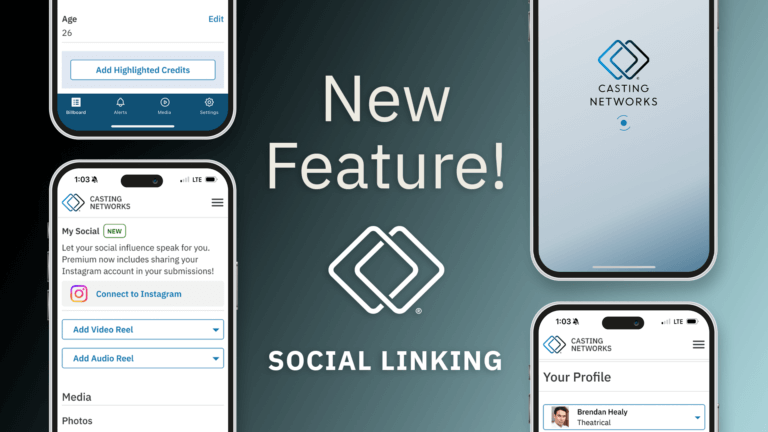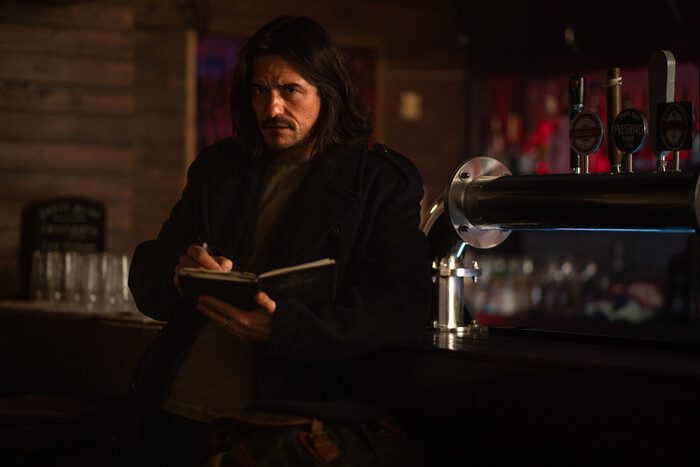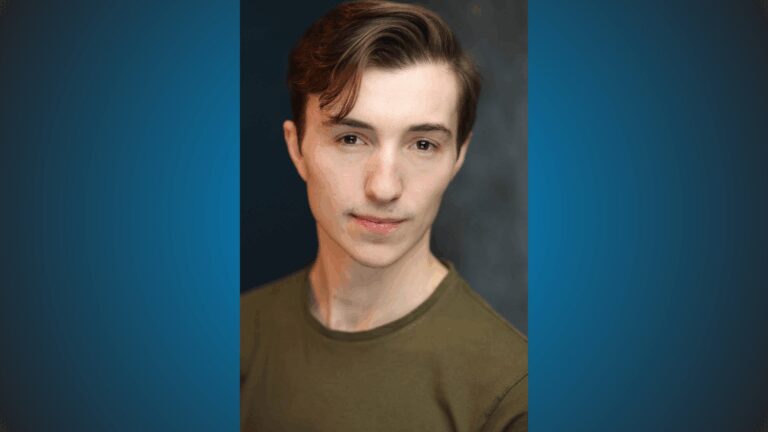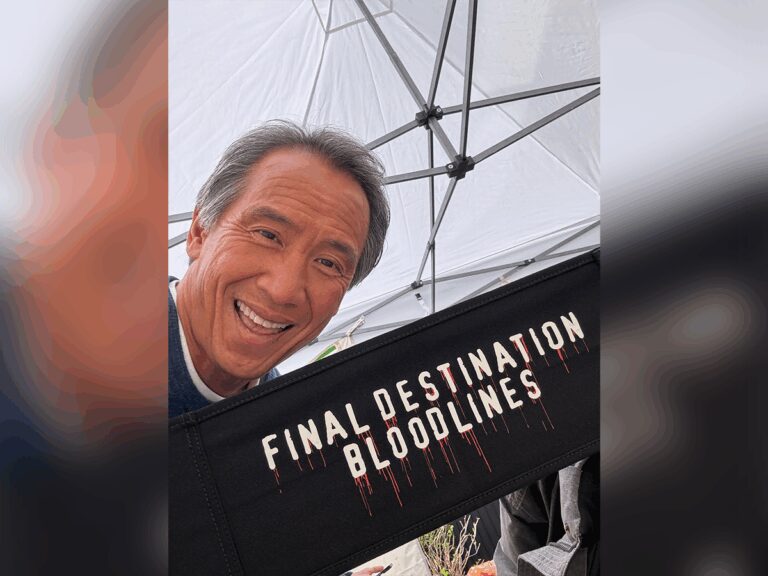When it comes to dispensing advice to actors young and old, I’m not sure there’s ever been anyone more qualified to speak to the Casting Networks audience than Jen Rudin.
As a former professional child actor, Artios award-winning casting director (Jen Rudin Casting), and casting executive at The Walt Disney Company, Rudin had already accomplished a lot in this industry — and that was before she expanded her résumé further by joining ICM Partners as an animation and voice-over talent agent back in July 2020 during the pandemic.
As a result, Rudin has become well-versed in what it takes for an actor to succeed — the dos and don’ts, from decorum to auditioning. So much so, she wrote a book about it called Confessions of a Casting Director (HarperCollins) — and produced a podcast of the same name — to demystify the process. I recently Zoomed with Rudin, where we covered a range of topics from at-home setups to how to win the audition room to handling your social media in the presence of a job.
Here’s what this enthusiastic and enlightening entertainment professional had to say.
Tell me a quick story. How does a former casting director and casting executive at The Walt Disney Company end up as an animation agent at ICM Partners during a global pandemic?
Jen: I was always playing agent and producer when I was a child. Even though I spent decades in casting, I think deep down it was always in my blood, in my DNA, but I fought it for so long. And it turns out that, actually pre-pandemic, I reached out to ICM and they said, “We’re definitely interested in talking about it.” So, it took a while and in the middle of the pandemic, in June of 2020, I was really busy casting some animated projects and Adam Schweitzer called me and he’s like alright, you ready to become an agent? And I was like, “Alright!”
So, speaking of the pandemic, what has COVID-19 changed most significantly about what it takes to win a role right now, voice-over or otherwise?
Jen: It’s funny because when I got here, so many people who hadn’t been in voice-over started to get into the space. I feel like voice-over and animation was always Broadway actors or comedians, and now, here was an opportunity in the middle of the pandemic for all of our ICM clients to learn about animation and to have greater opportunities.
How did you set up clients to take advantage of those opportunities?
Jen: The first part of the pandemic was shipping recording kits and getting everybody set up to record at home, which was a huge operation for Netflix and Nickelodeon to sort out, and I was also part of that. We created a sheet for the ICM clients to fill out with what they have at home — if they have anything at home! And we’re talking clients like William Hurt, Alan Cumming and Christina Ricci, clients that may not have been set up with anything at home suddenly were learning how to get microphones and headphones.
But I will say what’s really funny, there are certain clients and actors who have a full booth at home with soundproofing and a door — and there are some clients who are recording under a blanket because they have kids. And it doesn’t matter because the acting still needs to be good. You can have the best voice-over booth in the entire world, but if you’re not good at the gig, it doesn’t matter how nice your booth is — you’re not going to get the job.
Of what’s changed in terms of at-home setups, is there anything that’s here to stay once the world returns to “normal?”
Jen: I mean, listen, it’s been tough with the at-home setups. We have clients who spend more time with the tech engineer and by the time they’re all set up and they tested sound and levels it takes, you know, 45 minutes to set it all up and 20 minutes to record.
On the flip side, with all the auditions, there’s something wonderful about an actor being able to curate their audition at home. They can tape 25 times; they can tape 3 times; they can tape at 3 in the morning; they can tape at noon. That’s such a freedom for some actors instead of having to go see the casting director. But I still think there’s something to be said about going and being in the room and getting direction from the director — versus recording or taping from home. We encourage if you’re safe and comfortable to now go into a recording studio, make your life easy instead of you having to upload the links…
We want it to be easy, so hopefully things will get better, the Delta will go away, and we’ll get everybody back into professional recording studios.
As an animation agent, where does your involvement in the creative process begin and end when it comes to doing reads or self-tapes?
Jen: When I took the job, I vowed I would listen to every single MP3 that comes in from one of our clients before we send it to the casting directors — and that’s where I get to use my casting expertise so I can listen to a tape and say “Gregg, that was good, just pick up the pace.” Or “there’s pregnant pauses in there.” Or “it’s a Saturday morning cartoon for little kids so your villain needs to be a preschool villain, not a feature animation villain.”
We get tons of breakdowns that come in… we curate who should read for what, so we’re not in a situation where we’re like, “every man in his 40s is gonna read for this!” We really select our clients, and we also know who turns it around quickly; who is open to reading; who is offer only; who only wants to do feature films; who’s got kids so loves the kid space.
It’s very selective.
You wrote a book Confessions of a Casting Director with secrets and tips for anyone pursuing an acting career. I hate to ask you to parse it down, but is there one single piece of advice that you can point to that is the most relevant today — versus back when you wrote the book?
Jen: Yeah. The book came out in 2013, and it’s funny because it’s still quite relevant. We even had a chapter “Don’t Tweet Us, We’ll Tweet You,” which was all about social media.
I still believe everything in that book — like you shouldn’t be posting on Facebook that you had a great audition with Tom Selleck for Blue Bloods, that is nobody’s business. I think it’s even crazier now with all the different social media. I think the most important thing is to be prepared. Anything else you have going on; whether you were supposed to go out for dinner or were gonna try to go to a spin class (this was all pre-pandemic)… When you get that audition, when your manager or agent calls you, you gotta stop everything you’re doing and really focus on being as prepared as possible… The competition now is so fierce, especially in animation…
You have to know what you’re auditioning for and make changes depending on what it is. Now there is so much you can look up between Deadline and IMDB and all of that to know what the show is, what the tone is. So, just being prepared: that’s universal.
It’s in the book and still the most important thing.
I want to ask you about social media because you see influencers with big followings popping up now in series and movies. How pivotal is it as an actor to have a social media presence to be evaluated for a key role?
Jen: Yeah, I mean everybody has a different opinion. We have a really active digital department here at ICM…it’s an important area. Now, that being said, just because you’re on TikTok and you have one million followers doesn’t mean you’re necessarily good for animation or can act. But you could take some classes and learn…
And just because you’re funny on your videos doesn’t mean you’re gonna be funny when it translates to a script. It’s important to have a website first and also to realize, when it comes to social media, it’s a very small world. As my father says all you have is your name, which means don’t post photos of spring break drinks around the pool. We can find out everything about clients and actors, all the time…I still have friends posting on Facebook and Instagram “I’m in the final three for a guest spot on…” It’s like, report the news when you have something to report.
There’s also the jealousy factor…
Jen: There is nothing another actor can say on social media that’s going to make you, the actor, feel good about yourself. The same way when you see them at an audition, they either have a better agent than you, they either have a big diamond ring and you don’t have a boyfriend, they either just got back from LA and you haven’t had a callback. So, you have to think about that when you’re doing your social media as an actor like, alright, I want to share the good news that I’m going to be the voice of duh duh duh once it’s approved and they let me announce my role in my Pixar movie. Social media equals compare plus despair, right?
The same goes for posting auditions?
Jen: I don’t think you should be posting your auditions. It’s nobody’s business and the casting directors were in a rage years ago when people started to post stuff. It’s supposed to be a private audition between you and the casting director, nobody should be announcing anything.
We’re professionals here — we need to be professional about how we approach our social media.
I’m sort of blown away by Bo Burnham — not just his obvious talent and artistry, but how he essentially launched his career posting songs he wrote on YouTube. Is there a lesson here for those actors who claim ‘how can I ever get acting experience if nobody will hire me?’
Jen: It’s the famous Catch-22, which is also “How do I get an agent?” Look, now there are so many ways to express yourself and create art that we just didn’t have in the 1980s. We didn’t have the access to do any of those things, so I’m all for creating art and trying to get noticed if you have a voice and something interesting to say. Rachel Zegler is our client, she’s going to be Maria in the new West Side Story. She beat out 30,000 candidates — she submitted an audition on Twitter for the role. There’s a great example of a talented girl in high school, right, who had played Maria in her high-school production of West Side Story, and she sent in an audition.
We also represent Maitreyi from Never Have I Ever. Same thing. On a whim, saw the [casting call post] by Mindy Kaling and boom, sent in her audition. For Maitreyi and Rachel, two clients of ours, there are probably thousands of other young actors trying to do the same thing —who are not stars, who will not get that notoriety. But those are two great examples of two young women using social media to take a risk.
I often hear about casting directors who had former aspirations to be actors — or were actors. Does that prior ambition qualify you even more for the pursuit?
Jen: Look, I loved being a casting director. I sort of made a joke after my book came out. I was like, ‘Well, if I’m never a casting director again, I’ve fulfilled all my dreams.’ I’ve given some good advice to actors and I’m happy HarperCollins published my book. It was truly a dream come true.
A lot of people fall into casting. I don’t think you fall into becoming an agent. I think you really have to want to do it. Every day, we wake up and say, “Who are we going to get a job for today? Our job is to get clients jobs.” And all the other things we do for them in terms of supporting them in their careers… There are tons of actors that fall into casting. There are lots of casting directors who then become producers — because you’re essentially being a producer by putting all the pieces together.
But it’s also about timing. And then you have to really have to want to be doing it. When I had Jen Rudin Casting, I had actors help me as readers in auditions, but I never had any assistants or associates who were actors, because you have to really be comfortable on the other side of the table — and not jealous that all these actors are coming in and auditioning.
You had to have just made your peace.
What’s the biggest mistake most actors make in the audition room?
Jen: Oh god.
The worst mistake is coming into the room being a mess, having a bad morning, then saying, ‘Oh my god, the subways were so screwed up. The trains took so long and I’m so sorry I’m late.”
Or “Oh Gregg, I didn’t get a chance to finish reading your play but the few pages I read were great.” Well, the casting director is sitting there going, “We sent the whole play, we sent it last week…” I say the same thing to my clients right now when they have Zoom callbacks. “Show up early in that waiting room, have your water, be presentable as if you’re having an interview — even though it’s voice-over.” I’m not saying you should be in full makeup, but you should be looking nice because it’s technically a job interview — and be prepared.
Also, overstaying in the room. You do your scenes and say “thank you so much” — you’re done.
What’s the most common denominator between the people that win the room as opposed to lose it?
Jen: There were days when 60 actors would come in a day during pilot season…60. For five different pilots. That’s what it used to be like. Somebody comes in and they just look great on camera, their hair is blown, their outfit is perfect, they know their lines, they made great choices and you cannot take your eyes off them. There is something about their performance.
I used to say about live action — you’re acting with your eyes.
In this world with fewer in-person gatherings, I wanted to ask about networking and making inroads. What’s your best advice to actors about how to network in an atmosphere where people aren’t comfortable shaking hands — and where social distancing is a very real thing.
Jen: It’s all about connections; any profession really is. Any recommendations for jobs. I never got a casting job on LinkedIn. Never. It’s not structured like that. Today’s assistants are tomorrow’s agents, today’s casting assistants are tomorrow’s casting associates.
If you do connect with somebody, send a “thank you” note — a proper one. I always mailed my “thank you” notes after any meetings I ever had. That’s how I was raised by my mother. But you want to network in a good way. The worst thing is — and I used to hate this — actors would message me on Facebook. When they messaged the Jen Rudin Casting page, that was fine, but to message me at nine o’ clock at night about an audition when I had a website…
There’s a way to be professional about your networking.
Any other advice on how to make the best of an opportunity?
Jen: I think actors have to have their elevator pitch ready. If I would meet somebody I would say, “I was an award-winning casting director and author of Confessions of a Casting Director (published by HarperCollins) and started my career as a former professional child actor — now I am the head of the animation department at ICM Partners and it’s just fantastic.”
That’s my elevator pitch, and I don’t think actors know how to do that because they’re nervous and they just want to be liked. But I think if you’re trying to network for a job in casting or agenting, you need to be able to articulate where you went to college and have an aesthetic — what do you watch on TV, what actors do you like, are you invested in entertainment as a person?
Final question: Are podcasts to voice-over artists as YouTube is to on-camera talent these days?
Jen: I think so. So much has happened in the podcast space, the scripted podcast space. So, not only does everyone in the world have their own podcast — we also have a podcast department at ICM.
The pay is just all over the map — it’s unbelievable. It’s kind of the Wild West. I think scripted podcasts are so fun because you’re doing radio plays and you can record from anywhere. And fun for actors to express themselves — especially our Broadway clients who have not been able to work in so long. Bebe Neuwirth is one of our very busy animation clients. In the year I’ve been here, she’s done scripted podcasts, some animated features, some TV — and she’s really interested in the podcast space as well and mastered her own at-home recording setup.
It’s definitely an area that’s exploding with opportunities.
This interview has been edited for length and clarity.



